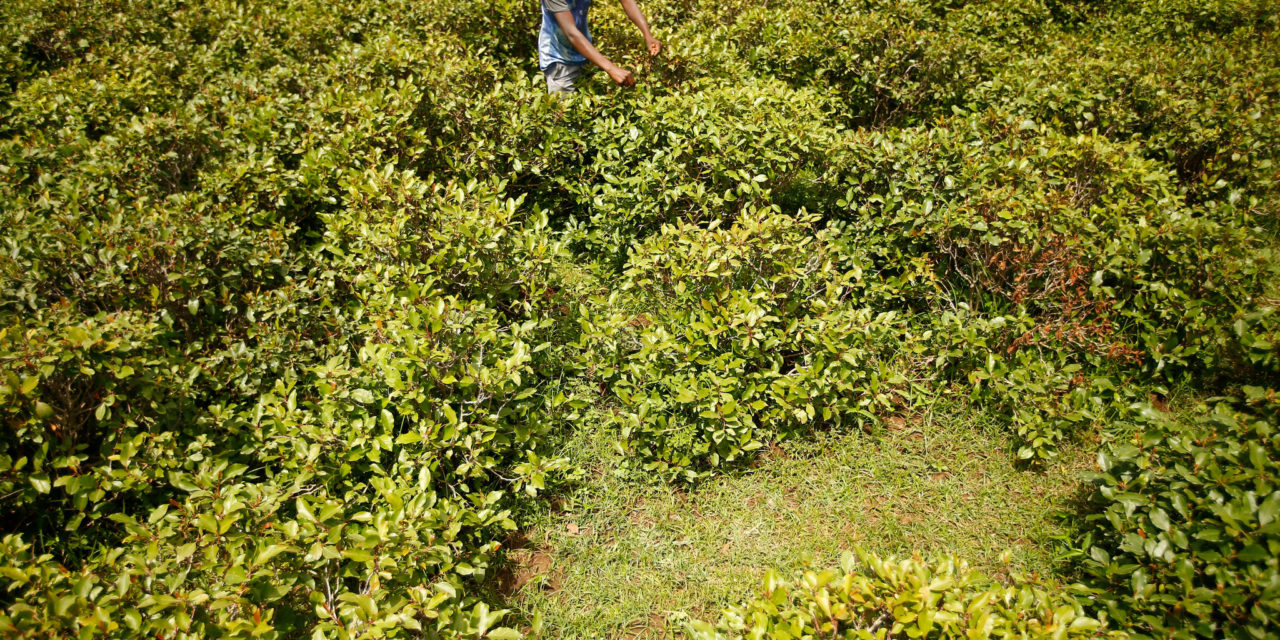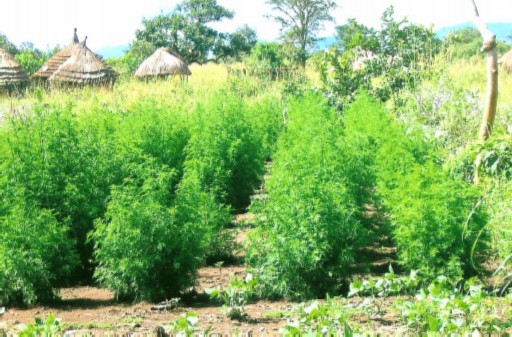The country’s government, which rules the economy with a tight grip, is worried that the habit could derail its plans to transform Ethiopia into a middle-income country in less than a decade ― a national undertaking that will require an army of young, capable workers, it says.
Khat is legal and remains so mainly because it is a big source of revenue for the government. But there are mounting concerns about its widespread use.
As many as 1.2 million acres of land are thought to be devoted to khat, nearly three times more than two decades ago. And the amount of money khat generates per acre surpasses all other crops, including coffee, Ethiopia’s biggest export, said Gessesse Dessie, a researcher at the African Studies Center Leiden at Leiden University.
That payoff, and the dwindling availability of land, has pushed thousands of farmers to switch to khat, he said. The changes have come as the government has pushed farmers off land that it has given to foreign investors in recent years.
…There simply are not enough jobs, young people complain, often expressing doubt over the government’s growth figures.
It is because of this lack of jobs, many say, that they take up khat in the first place ― to kill time.
“It’s a huge problem,” said Shidigaf Haile, a public prosecutor in Gonder, a city in northern Ethiopia, which was rocked by violent protests last year, mainly by young people over the absence of jobs.
More than half of the city’s youth now chew khat, Mr. Shidigaf said. Many gather in khat dens away from prying eyes.
“It’s because there is a lack of work,” he added, saying there were numerous cases of people who were so dependent on the leaves, sold in packs, that they turned to petty crime. The government recognizes the problem, he said, but so far it has not been tackled directly.
“It’s bad for Ethiopia’s economic development because they become lazy, unproductive, and their health will be affected,” he said.
Khat’s effects vary depending on the amount consumed and the quality of the leaf, of which there are at least 10 varieties, according to growers. Some people turn hot and agitated. Others become concentrated on whatever is at hand to such an extent that they block out everything and reach “merkana,” a quasi-catatonic state of bliss. Chronic abuse, the American government warns, can lead to exhaustion, “manic behavior with grandiose delusions, violence, suicidal depression or schizophreniform psychosis.”
Dependency on khat is more psychological than physical, according to Dr. Dawit Wondimagegn Gebreamlak, who heads the psychiatry department at Addis Ababa University in Ethiopia’s capital. Chewing it “is quite a complex cultural phenomenon,” he said, adding that simply banning it would be difficult, given its role in cultural rites among certain religious groups.
After last year’s protests, and their subsequent violent crackdown by security forces, the government prohibited communal activities because meetings were seen as a threat to public order and a potential gathering place for dissidents.
Still, the young are defiant.
There are “bercha-houses,” secret khat dens, where young people congregate in cramped rooms, bobbing their heads to Teddy Afro, a popular Ethiopian pop singer whose lyrics are considered veiled criticisms of the government.
There are hide-outs on the banks of the Nile River, where young people stretch themselves out under mango and banana trees, chewing khat and throwing peanuts in their mouths.
Even a guesthouse where Mengistu Haile Mariam, the authoritarian ruler ousted by the current governing party 26 years ago, stayed during the summers was recently overrun by young people celebrating the end of their studies, some chewing khat in one of the bleak Soviet-style rooms with the curtains drawn.
Yared Zelalem, 17, and Yonas Asrat, 27, chewed khat on the side of a street in Addis Ababa, waiting for the odd job of washing cars to come their way. They had been chewing for five hours already, and it was still early afternoon.
They both arrived in the capital 10 years ago looking for work, they said, after Mr. Zelalem’s parents died and Mr. Asrat’s family was kicked off its farmland to make way for a resort hotel.
Mr. Asrat looked morose. “Nothing has changed in the past 10 years except for my physical appearance,” he said, showing his home, a beat-up taxi with a foam mattress inside. “This country is only for investors.”
Fred Gardner’s Retro Message:
Because I had just published a backgrounder about the US role in Vietnam, this line in the khat story struck me hard: “The changes have come as the government has pushed farmers off land that it has given to foreign investors in recent years.”
Like the unemployed Ethiopians today, the Indochinese peasants who fought against the French, Japanese, and then U.S. Armed Forces in the 20th century, had lost land to “foreign investors.” The pattern is usually the same: Capitalists from overseas fund native potentates and generals —and supply all the armaments and training needed to keep them in power— while they, the foreigners, scoop out the country’s natural resources. Is it any wonder that desperate people are fleeing their African homelands?
By decrying the growing use of khat, the Ethiopian authorities come off looking like they really care about the well-being of their people (while misdirecting attention from their role in creating the situation). A good reporter, de Freytas-Temura points out that unemployment leads to boredom leads to drugs, and she even provides a mention of what leads to unemployment: foreign investors.
Every now and then an immigrant from Ethiopia gets busted in California for selling khat. Cathinone is a Schedule I substance; Cathine is Sked IV, according to the helpful DEA fact sheet.






